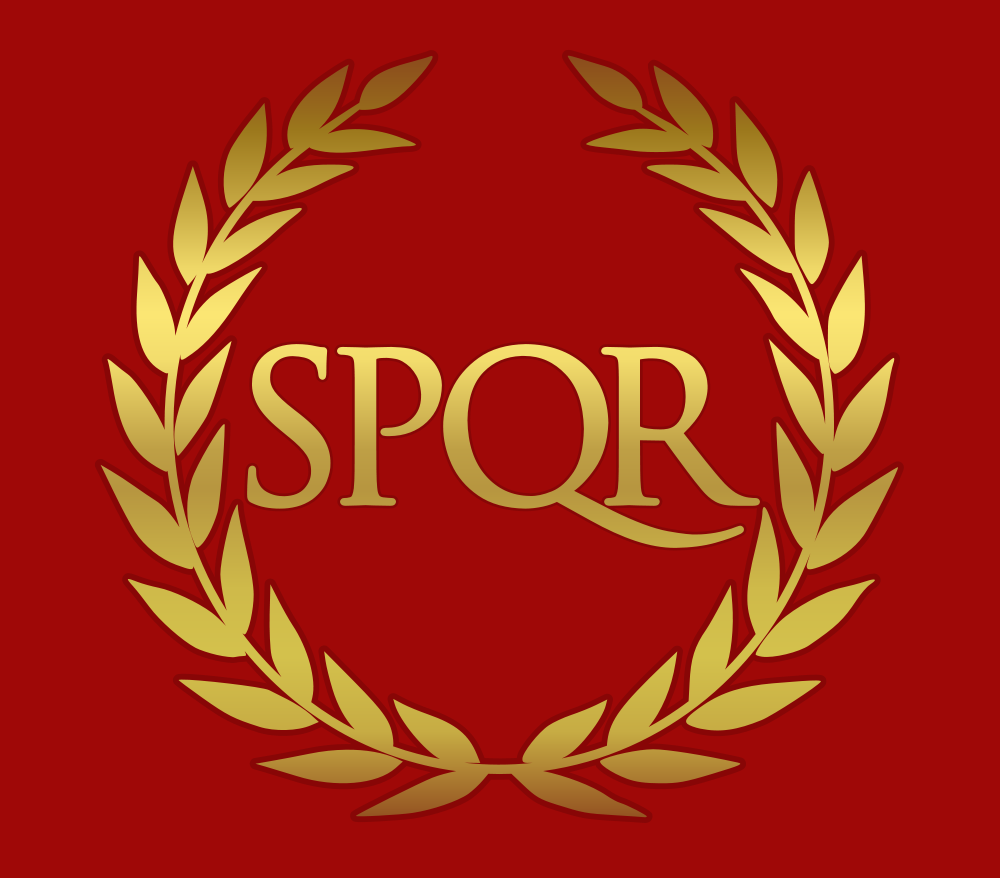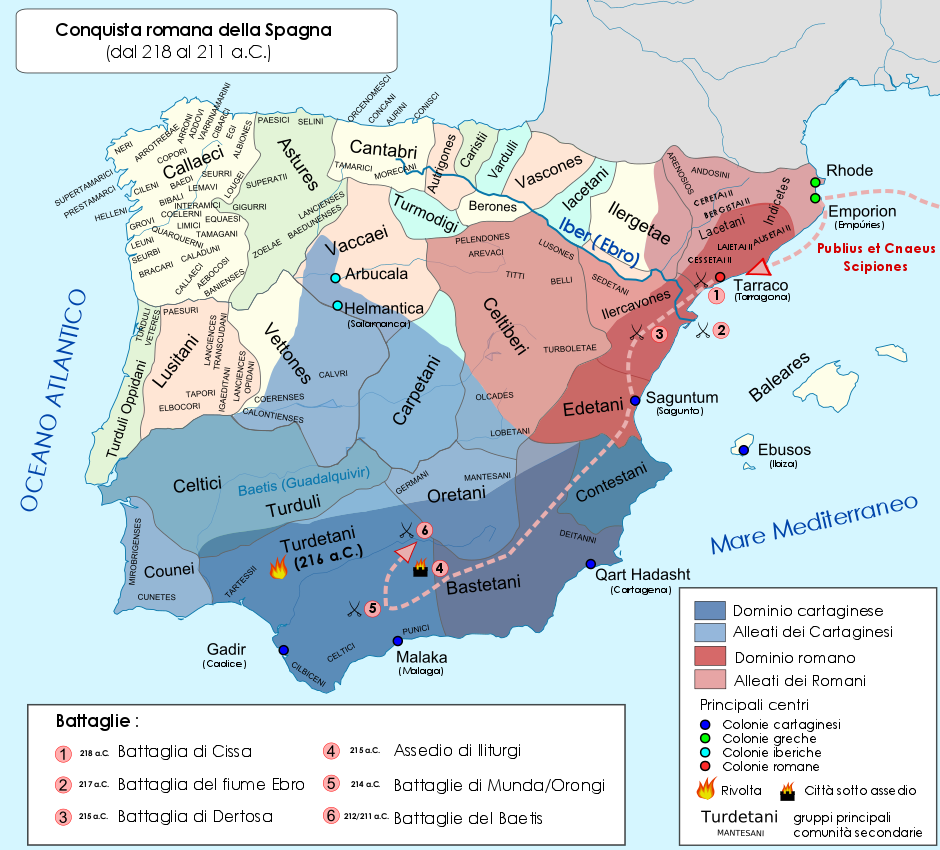|
Battle Of Utica (203 BC)
The Battle of Utica was fought in 203 BC between armies of Rome and Carthage during the Second Punic War. Through a surprise attack, the Roman commander Scipio Africanus managed to destroy a numerous force of Carthaginians and their Numidian allies not far from the outflow of the Medjerda River in modern Tunisia. Thus he gained a decisive strategic advantage, switched the focus of the war from Italy and Iberia to Carthaginian north Africa, and contributed largely to the final Roman victory. Background The invasion of Africa was a part of the initial Roman plans for the conduct of the Second Punic War. The Carthaginian General Hannibal thwarted them when he set out from his base in Iberia, went through southern Gaul and crossed the Alps in 218 BC. The consul to whom the expedition to Carthage was entrusted, decided to transfer his army from Sicily to Cisalpine Gaul to defend the north of Italy only to be heavily defeated at the resulting battle of Trebia; clearing the way for Han ... [...More Info...] [...Related Items...] OR: [Wikipedia] [Google] [Baidu] |
Second Punic War
The Second Punic War (218 to 201 BC) was the second of three wars fought between Carthage and Rome, the two main powers of the western Mediterranean in the 3rd century BC. For 17 years the two states struggled for supremacy, primarily in Italy and Iberia, but also on the islands of Sicily and Sardinia and, towards the end of the war, in North Africa. After immense materiel and human losses on both sides the Carthaginians were defeated. Macedonia, Syracuse and several Numidian kingdoms were drawn into the fighting, and Iberian and Gallic forces fought on both sides. There were three main military theatres during the war: Italy, where Hannibal defeated the Roman legions repeatedly, with occasional subsidiary campaigns in Sicily, Sardinia and Greece; Iberia, where Hasdrubal, a younger brother of Hannibal, defended the Carthaginian colonial cities with mixed success before moving into Italy; and Africa, where Rome finally won the war. The First Punic War had ended in a Roman ... [...More Info...] [...Related Items...] OR: [Wikipedia] [Google] [Baidu] |
Iberian Peninsula
The Iberian Peninsula (), ** * Aragonese and Occitan: ''Peninsula Iberica'' ** ** * french: Péninsule Ibérique * mwl, Península Eibérica * eu, Iberiar penintsula also known as Iberia, is a peninsula in southwestern Europe, defining the westernmost edge of Eurasia. It is principally divided between Spain and Portugal, comprising most of their territory, as well as a small area of Southern France, Andorra, and Gibraltar. With an area of approximately , and a population of roughly 53 million, it is the second largest European peninsula by area, after the Scandinavian Peninsula. Name Greek name The word ''Iberia'' is a noun adapted from the Latin word "Hiberia" originating in the Ancient Greek word Ἰβηρία ('), used by Greek geographers under the rule of the Roman Empire to refer to what is known today in English as the Iberian Peninsula. At that time, the name did not describe a single geographical entity or a distinct population; the same name was us ... [...More Info...] [...Related Items...] OR: [Wikipedia] [Google] [Baidu] |
From The Founding Of The City/Book 28
From may refer to: * From, a preposition * From (SQL), computing language keyword * From: (email message header), field showing the sender of an email * FromSoftware, a Japanese video game company * Full range of motion, the travel in a range of motion * Isak From (born 1967), Swedish politician * Martin Severin From (1825–1895), Danish chess master * Sigfred From Sigfred From (12 December 1925 – April 1998), was a Danish chess player. Biography From the begin of 1960s to the begin of 1970s Sigfred From was one of Danish leading chess players. He regularly played in Danish Chess Championships. Her best ... (1925–1998), Danish chess master * ''From'' (TV series), a sci-fi-horror series that debuted on Epix in 2022 {{disambig ... [...More Info...] [...Related Items...] OR: [Wikipedia] [Google] [Baidu] |
From The Founding Of The City/Book 27
From may refer to: * From, a preposition * From (SQL), computing language keyword * From: (email message header), field showing the sender of an email * FromSoftware, a Japanese video game company * Full range of motion, the travel in a range of motion * Isak From (born 1967), Swedish politician * Martin Severin From (1825–1895), Danish chess master * Sigfred From (1925–1998), Danish chess master * ''From'' (TV series), a sci-fi-horror series that debuted on Epix in 2022 {{disambig ... [...More Info...] [...Related Items...] OR: [Wikipedia] [Google] [Baidu] |
Siege Of Syracuse (214–212 BC)
{{disambiguation ...
Siege of Syracuse may refer to: Sieges By the Athenians: * Siege of Syracuse (415–413 BC), during the Sicilian Expedition By, or in league with, the Carthaginians: * Siege of Syracuse (397 BC) * Siege of Syracuse (343 BC) * Siege of Syracuse (311–309 BC) * Siege of Syracuse (278 BC) By the Roman Republic: * Siege of Syracuse (213–212 BC), during the Second Punic War against Carthage By the Arab Aghlabid dynasty: * Siege of Syracuse (827–828) * Siege of Syracuse (868) * Siege of Syracuse (877–878) Other * ''Siege of Syracuse'' (film), a 1960 historical drama film See also * List of sieges of Syracuse The city of Syracuse, Sicily, Syracuse, on the island of Sicily southwest of the Italian peninsula, has been besieged repeatedly since its founding as a Greek colonies, Greek colony, including the following: * BCE, Before the Common Era, while a G ... [...More Info...] [...Related Items...] OR: [Wikipedia] [Google] [Baidu] |
Battle Of The Metaurus
The Battle of the Metaurus was a pivotal battle in the Second Punic War between Rome and Carthage, fought in 207 BC near the Metauro River in Italy. The Carthaginians were led by Hasdrubal Barca, brother of Hannibal, who was to have brought siege equipment and reinforcements for Hannibal. The Roman armies were led by the consuls Marcus Livius, who was later nicknamed the Salinator, and Gaius Claudius Nero. Claudius Nero had just fought Hannibal in Grumentum, some hundreds of kilometres south of the Metaurus river, and reached Marcus Livius by a forced march that went unnoticed by both Hannibal and Hasdrubal, so that the Carthaginians suddenly found themselves outnumbered. In the battle, the Romans used their numerical superiority to outflank the Carthaginian army and rout them, the Carthaginians losing 15,400 men killed or captured, including Hasdrubal. The battle confirmed Roman supremacy over Italy. Without Hasdrubal's army to support him, Hannibal was compelled to evacuate p ... [...More Info...] [...Related Items...] OR: [Wikipedia] [Google] [Baidu] |
Hasdrubal Barca
Hasdrubal Barca (245– 22June 207BC), a latinization of ʿAzrubaʿal ( xpu, 𐤏𐤆𐤓𐤁𐤏𐤋 ) son of Hamilcar Barca, was a Carthaginian general in the Second Punic War. He was the brother of Hannibal and Mago Barca. Youth and Iberian leadership Little is known of Hasdrubal's early life. He was present, along with his older brother Hannibal, when his father, Hamilcar Barca, died in battle against the Iberians. Hamilcar may have drowned in the Júcar, although the sources do not agree. Little is also known about Hasdrubal's activities during the time Hasdrubal the Fair led the Punic forces in Spain, or during the campaigns of Hannibal Barca in Spain and his Siege of Saguntum. Hannibal left a force of 13,000 infantry, 2,550 cavalry and 21 war elephants in Hispania when he marched for Italy in 218 BC. Hasdrubal commanded this force and he was to set out for Italy in 217 BC to reinforce Hannibal. Hannibal left another army under Hanno in Catalonia, consisting of 10,000 fo ... [...More Info...] [...Related Items...] OR: [Wikipedia] [Google] [Baidu] |
Battle Of Cannae
The Battle of Cannae () was a key engagement of the Second Punic War between the Roman Republic and Carthage, fought on 2 August 216 BC near the ancient village of Cannae in Apulia, southeast Italy. The Carthaginians and their allies, led by Hannibal, surrounded and practically annihilated a larger Roman and Italian army under the consuls Lucius Aemilius Paullus and Gaius Terentius Varro. It is regarded as one of the greatest tactical feats in military history and one of the worst defeats in Roman history. Having recovered from their losses at Trebia (218 BC) and Lake Trasimene (217 BC), the Romans decided to engage Hannibal at Cannae, with approximately 86,000 Roman and allied troops. They massed their heavy infantry in a deeper formation than usual, while Hannibal used the double envelopment tactic and surrounded his enemy, trapping the majority of the Roman army, who were then slaughtered. The loss of life on the Roman side meant it was one of the most lethal sin ... [...More Info...] [...Related Items...] OR: [Wikipedia] [Google] [Baidu] |
Battle Of Trebia
The Battle of the Trebia (or Trebbia) was the first major battle of the Second Punic War, fought between the Carthaginian forces of Hannibal and a Roman army under Sempronius Longus on 22 or 23 December 218 BC. It took place on the flood plain of the west bank of the lower Trebia River, not far from the settlement of Placentia (modern Piacenza), and resulted in a heavy defeat for the Romans. War broke out between Carthage and Rome in 218 BC. The leading Carthaginian general, Hannibal, responded by leading a large army out of Iberia (modern Spain and Portugal), through Gaul, across the Alps and into Cisalpine Gaul (modern northern Italy). The Romans went on the attack against the reduced force which had survived the rigours of the march and Publius Scipio personally led the cavalry and light infantry of the army he commanded against the Carthaginian cavalry at the Battle of Ticinus. He was soundly beaten and personally wounded. The Romans retreated to near Placentia, forti ... [...More Info...] [...Related Items...] OR: [Wikipedia] [Google] [Baidu] |
Cisalpine Gaul
Cisalpine Gaul ( la, Gallia Cisalpina, also called ''Gallia Citerior'' or ''Gallia Togata'') was the part of Italy inhabited by Celts (Gauls) during the 4th and 3rd centuries BC. After its conquest by the Roman Republic in the 200s BC it was considered geographically part of Roman Italy but remained administratively separated until 42 BC. It was a Roman province from c. 81 BC until 42 BC, when it was ''de jure'' merged into Roman Italy as indicated in Caesar's unpublished acts (''Acta Caesaris''). Cisalpine means "on this side of the Alps" (from the perspective of the Romans), as opposed to Transalpine Gaul ("on the far side of the Alps"). Gallia Cisalpina was further subdivided into ''Gallia Cispadana'' and ''Gallia Transpadana'', i.e. its portions south and north of the Po River, respectively. The Roman province of the 1st century BC was bounded on the north and west by the Alps, in the south as far as Placentia by the river Po, and then by the Apennines and the river ... [...More Info...] [...Related Items...] OR: [Wikipedia] [Google] [Baidu] |
Sicily
(man) it, Siciliana (woman) , population_note = , population_blank1_title = , population_blank1 = , demographics_type1 = Ethnicity , demographics1_footnotes = , demographics1_title1 = Sicilian , demographics1_info1 = 98% , demographics1_title2 = , demographics1_info2 = , demographics1_title3 = , demographics1_info3 = , timezone1 = CET , utc_offset1 = +1 , timezone1_DST = CEST , utc_offset1_DST = +2 , postal_code_type = , postal_code = , area_code_type = ISO 3166 code , area_code = IT-82 , blank_name_sec1 = GDP (nominal) , blank_info_sec1 = €89.2 billion (2018) , blank1_name_sec1 = GDP per capita , blank1_info_sec1 ... [...More Info...] [...Related Items...] OR: [Wikipedia] [Google] [Baidu] |





